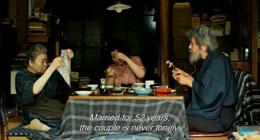Tibetan New Wave hits Vancouver International Film Festival Gateway showcases

For the first time, Vancouver International Film Festival’s Dragon & Tiger series has three Tibetan works. Lhapal Gyal’s Wangdrak’s Rain Boots is the story of a poor young boy’s development, Sonthar Gyal’s Ala Changso portrays a gruelling spiritual journey, and Pema Tseden’s Jinpa is an eccentric tale of revenge, produced by Wong Kar Wai.
“The last 13 years have witnessed a new movement in Tibetan filmmaking, something we might call a Tibetan New Wave,” said Shelly Kraicer, Gateway Programming Consultant and one of the foremost Western experts on Chinese cinema.
“A small group of young visionary Tibetan directors, filming mostly in the Amdo region of Qinghai, China, have figured out how to realize their visions while facing a myriad of obstacles.”
Other films feature artists from China, South Korea, and Japan. Of the eight directors, five of them are women, including Indonesia / Netherland’s Kamila Andini, South Korea’s Moon So-ri, and Vietnam’s Ash Mayfair. From China, there is Jia Zhangke, BI Gan’s; from South Korea comes Lee Changdong; from Japan, Daihachi Yoshida and Hamaguchi Ryusuke.
The festival theme is about different aspects of the home. South Korea’s Jeon Go-woon’s Microhabitat portrays a resourceful, couch-surfing woman, while Japan’s Okita Shuichi’s Mori, the Artist’s Habit is a comic look at a 30-year recluse. Thailand’s Manta Ray’s Phuttiphong Aroonpheng, a man takes over his rescuer’s home–and his life. Japan’s Hosoda Mamoru’s Mirai and Philippine’s Shireen Seno, Nervous Translation present home and family from the perspective of small children.
“As we experience greater political and economic instability around the globe, filmmakers explore the shifting ideas of what constitutes home and family, while evaluating the consequences of consumerism and materialism,” said Maggie Lee, Gateway Programming Consultant and Chief Asia film critic at Variety.









